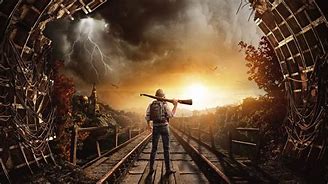Feature
‘Social media should be restricted before voting in India’Comment below

There are over 30 crore monthly active users on Facebook and more than 20 crore on WhatsApp in India. Even the Narendra Modi app alone can reach 1 crore people in a day.
With such a wide reach, should social media platforms be made to censor political content 48 hours ahead of polling as part of the strategy to maintain the so called “campaign silence”?

“Today, when social media is increasingly one of the most significant factors for impacting the electoral decisions of voters, it is important that the Election Commission take adequate steps to maintain campaign silence,” Pavan Duggal, one of the nation’s top cyber law experts, told IANS.
While the Election Commission of India recognises the impact social media can have on voters ahead of voting, the current legislation does not bar these platforms – many of which now allow live video streaming services — from blocking political ads or propaganda.
These platforms can decide to do so voluntarily, but how effective such a measure would be remains doubtful.
In fact, in response to a petition to restrain any political advertisements, videos or messages before elections, Facebook last month told the Bombay High Court that it would not self-censor any content on its site.
It also raised practical difficulties of implementing such a rule as elections in different parts of India are held on different dates and often spread over a week.

The Election Commission last year formed a committee to review this section so that maintaining campaign silence can be made effective in the changed circumstances where social media yields considerable influence. The committee submitted its recommendation earlier this year.
A query to the poll panel on how it plans to stop social media platforms from broadcasting campaign material ahead of polling went unanswered.
“The Election Commission does not need to be a silent spectator,” Duggal said.
“The Election Commission should invoke the provisions of the specific liability of the service providers in their capacity as intermediaries under the Information Technology Act, 2000,” he said.
A parliamentary panel earlier this month raised grave concerns regarding Facebook’s ability to prevent misuse of its platform during the upcoming Lok Sabha elections and to proactively help the security agencies.
The social media company admitted it doesn’t “always get it right” regarding content moderation on its platform.
Last month, Colin Crowell, Global Vice President of Public Policy of Twitter, deposed before the BJP MP Anurag Thakur-led panel and discussed how it would address issues such as political bias and manipulation on its platform in real-time.
With threats of foreign interference in Indian elections and spread of fake news on social media looming large, specific, detailed, deterrent legal and penal consequences need to be specifically elaborated in the Act so as to provide criminal, legal and penal liability of the various social media platforms, Duggal informed.
Entertainment
Meghalaya Reserves Legalized Gambling and Sports Betting for Tourists

The State Scores Extra High on Gaming-Friendly Industry Index
Meghalaya scored 92.85 out of 100 possible points in a Gaming Industry Index and proved to be India’s most gaming-friendly state following its recent profound legislation changes over the field allowing land-based and online gaming, including games of chance, under a licensing regime.
The index by the UK India Business Council (UKIBC) uses a scale of 0 to 100 to measure the level of legalisation on gambling and betting achieved by a state based on the scores over a set of seven different games – lottery, horse racing, betting on sports, poker, rummy, casino and fantasy sports
Starting from February last year, Meghalaya became the third state in India’s northeast to legalise gambling and betting after Sikkim and Nagaland. After consultations with the UKIBC, the state proceeded with the adoption of the Meghalaya Regulation of Gaming Act, 2021 and the nullification of the Meghalaya Prevention of Gambling Act, 1970. Subsequently in December, the Meghalaya Regulation of Gaming Rules, 2021 were notified and came into force.
All for the Tourists
The move to legalise and license various forms of offline and online betting and gambling in Meghalaya is aimed at boosting tourism and creating jobs, and altogether raising taxation revenues for the northeastern state. At the same time, the opportunities to bet and gamble legally will be reserved only for tourists and visitors.
“We came out with a Gaming Act and subsequently framed the Regulation of Gaming Rules, 2021. The government will accordingly issue licenses to operate games of skill and chance, both online and offline,” said James P. K. Sangma, Meghalaya State Law and Taxation Minister speaking in the capital city of Shillong. “But the legalized gambling and gaming will only be for tourists and not residents of Meghalaya,” he continued.
To be allowed to play, tourists and people visiting the state for work or business purposes will have to prove their non-resident status by presenting appropriate documents, in a process similar to a bank KYC (Know Your Customer) procedure.
Meghalaya Reaches Out to a Vast Market
With 140 millions of people in India estimated to bet regularly on sports, and a total of 370 million desi bettors around prominent sporting events, as per data from one of the latest reports by Esse N Videri, Meghalaya is set to reach out and take a piece of a vast market.
Estimates on the financial value of India’s sports betting market, combined across all types of offline channels and online sports and cricket predictions and betting platforms, speak about amounts between $130 and $150 billion (roughly between ₹9.7 and ₹11.5 lakh crore).
Andhra Pradesh, Telangana and Delhi are shown to deliver the highest number of bettors and Meghalaya can count on substantial tourists flow from their betting circles. The sports betting communities of Karnataka, Maharashtra, Uttar Pradesh and Haryana are also not to be underestimated.
Among the sports, cricket is most popular, registering 68 percent of the total bet count analyzed by Esse N Videri. Football takes second position with 11 percent of the bets, followed by betting on FIFA at 7 percent and on eCricket at 5 percent. The last position in the Top 5 of popular sports for betting in India is taken by tennis with 3 percent of the bet count.
Local Citizens will Still have Their Teer Betting
Meghalaya residents will still be permitted to participate in teer betting over arrow-shooting results. Teer is a traditional method of gambling, somewhat similar to a lottery draw, and held under the rules of the Meghalaya Regulation of the Game of Arrow Shooting and the Sale of Teer Tickets Act, 2018.
Teer includes bettors wagering on the number of arrows that reach the target which is placed about 50 meters away from a team of 20 archers positioned in a semicircle.
The archers shoot volleys of arrows at the target for ten minutes, and players place their bets choosing a number between 0 and 99 trying to guess the last two digits of the number of arrows that successfully pierce the target.
If, for example, the number of hits is 256, anyone who has bet on 56 wins an amount eight times bigger than their wager.























